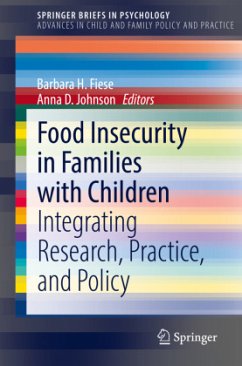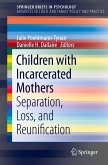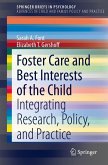This book synthesizes research about the effects of food insecurity on children, families, and households, emphasizing multiple pathways and variations across developmental contexts. It focuses on emerging new methods that allow for a more refined approach to practice and policy. The volume provides a brief overview of the topic, and additional empirical chapters pose and address unanswered research questions. It concludes with a short commentary, providing recommendations for future research and policy and yielding a significant and timely contribution to advance developmental scientific knowledge and promote its use to improve the lives of children and families.
Featured areas of coverage include:
The effects of early food insecurity on children's academic and socio-emotional outcomes.The effects of household food insecurity on children with disabilities.Early childhood access to Women, Infants, and. Children (WIC) and school readiness.Supplemental Nutrition Assistance Program (SNAP) and adolescent mental health.
Food Insecurity in Families with Children is an essential resource for policy makers and related professionals as well as graduate students and researchers in developmental, clinical, and school psychology, child, youth and family policy, public health, and social work.
Featured areas of coverage include:
The effects of early food insecurity on children's academic and socio-emotional outcomes.The effects of household food insecurity on children with disabilities.Early childhood access to Women, Infants, and. Children (WIC) and school readiness.Supplemental Nutrition Assistance Program (SNAP) and adolescent mental health.
Food Insecurity in Families with Children is an essential resource for policy makers and related professionals as well as graduate students and researchers in developmental, clinical, and school psychology, child, youth and family policy, public health, and social work.








